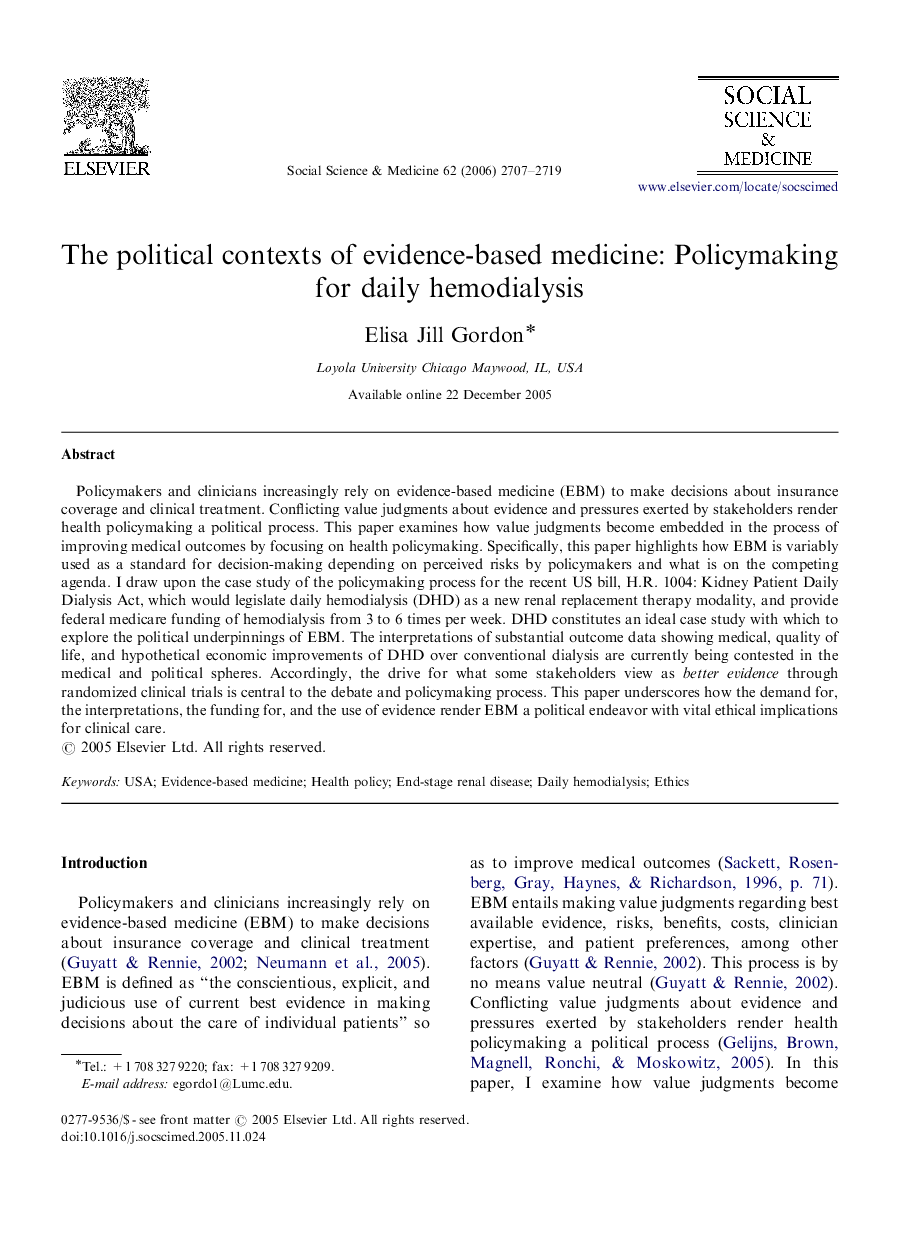| Article ID | Journal | Published Year | Pages | File Type |
|---|---|---|---|---|
| 954270 | Social Science & Medicine | 2006 | 13 Pages |
Policymakers and clinicians increasingly rely on evidence-based medicine (EBM) to make decisions about insurance coverage and clinical treatment. Conflicting value judgments about evidence and pressures exerted by stakeholders render health policymaking a political process. This paper examines how value judgments become embedded in the process of improving medical outcomes by focusing on health policymaking. Specifically, this paper highlights how EBM is variably used as a standard for decision-making depending on perceived risks by policymakers and what is on the competing agenda. I draw upon the case study of the policymaking process for the recent US bill, H.R. 1004: Kidney Patient Daily Dialysis Act, which would legislate daily hemodialysis (DHD) as a new renal replacement therapy modality, and provide federal medicare funding of hemodialysis from 3 to 6 times per week. DHD constitutes an ideal case study with which to explore the political underpinnings of EBM. The interpretations of substantial outcome data showing medical, quality of life, and hypothetical economic improvements of DHD over conventional dialysis are currently being contested in the medical and political spheres. Accordingly, the drive for what some stakeholders view as better evidence through randomized clinical trials is central to the debate and policymaking process. This paper underscores how the demand for, the interpretations, the funding for, and the use of evidence render EBM a political endeavor with vital ethical implications for clinical care.
